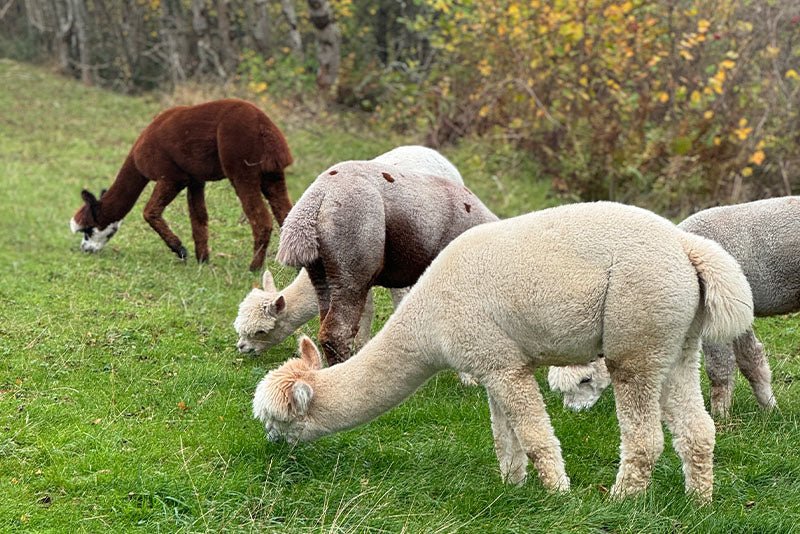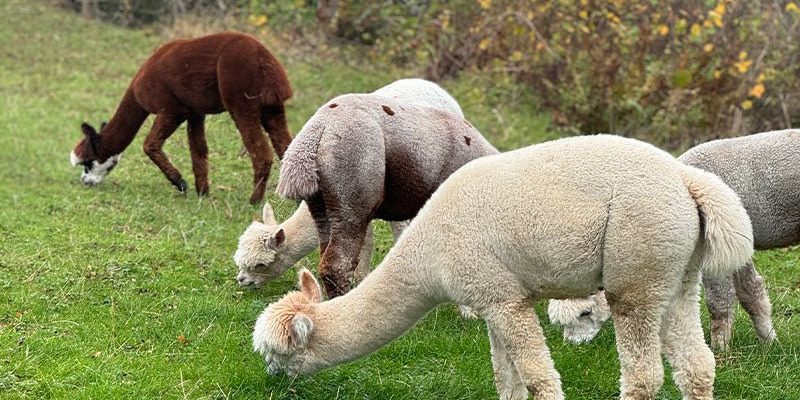
Here’s the thing: while alpacas can be delightful companions, they come with their own set of needs and quirks. You might be wondering what makes them special or what challenges they bring. Let’s dive into the pros and cons of having an alpaca as a pet, so you can decide if these charming animals are a good fit for you and your lifestyle.
The Pros of Having Alpacas as Pets
Alpacas aren’t just adorable; they have some pretty great qualities that make them stand out as pets. First off, they’re known for their gentle temperament. Alpacas are usually calm and friendly, making them perfect for families or individuals who want a companion that’s easy to manage. Imagine coming home after a long day and having a soft, fluffy alpaca greet you at the door with a curious look. It’s hard not to smile!
Another big advantage of alpacas is their low-maintenance nature. Unlike dogs that need daily walks or constant attention, alpacas require less day-to-day care. They enjoy grazing on grass and hay and don’t need extensive grooming like some other animals. Just a bit of regular shearing (typically once a year) to keep their fleece in check, and you’re good to go. You can spend more time enjoying their company rather than worrying about big upkeep.
Plus, if you’re keen on sustainability, alpacas are eco-friendly pets. Their soft feet don’t damage the ground like hooved animals do, and they produce less waste compared to larger livestock. This means they can be a great addition to your yard without causing significant wear and tear on your property. You’re not just getting a pet; you’re supporting a greener lifestyle!
The Cons of Having Alpacas as Pets
Now, it wouldn’t be fair not to discuss the challenges of having alpacas. One of the biggest hurdles? Space requirements. Alpacas need plenty of room to roam and graze. Ideally, you should have at least a half-acre for one alpaca, and more if you want to keep a small herd. If you live in a tiny apartment or a tiny yard, then an alpaca isn’t the pet for you!
Another consideration is their social nature. Alpacas are herd animals, which means they thrive in groups. Keeping just one alpaca can lead to loneliness and stress for the animal. So, if you decide to welcome an alpaca into your home, you might need to add at least one more to keep them happy. This increases costs and the effort you’ll need to put in.
Lastly, there’s the issue of healthcare and nutrition. While alpacas are generally hardy, they do require specific veterinary care and a balanced diet. Finding a vet who specializes in exotic animals can sometimes be tricky, depending on where you live. That means you’ll need to do your homework to ensure you can provide the care they need.
Alpaca Personality: What to Expect
Alpacas are known for their quirky personalities. Each one is unique, and you might find some are more playful or affectionate than others. They often express themselves through their body language. For example, when they’re excited, you might see them bouncing around or performing a little dance, which can be quite entertaining!
Moreover, they communicate through a variety of sounds. From gentle humming to sharper alarm calls, alpacas have a whole language of their own. If you take the time to get to know them, you’ll become fluent in alpaca-speak in no time! This can make for a delightful companionship as you learn to interpret their moods.
However, you might encounter some initial shyness with your alpacas. They may take time to warm up to you, especially if they haven’t been handled much before. Patience is key here. Spending time near them, talking softly, and offering treats can help build that bond. Soon enough, you’ll find yourself with a loyal companion who truly enjoys your presence.
Feeding and Caring for Alpacas
Feeding alpacas is relatively straightforward, but it’s important to get it right. They primarily eat hay and grass, and you might also need to provide them with some grains or specially formulated pellets, especially during the colder months. Keeping their hay clean and dry is essential to prevent health issues.
Water is another critical aspect of alpaca care. Alpacas require fresh, clean water daily. You’ll want to check their water supply regularly, especially during hot days, so they stay hydrated and healthy.
Another consideration is regular shearing. As mentioned, alpacas need to be sheared at least once a year. This isn’t just for their comfort; it’s also for their health. If the fleece gets too thick, it can cause overheating in warm weather. Be sure to find someone who knows how to shear properly, as it’s a skill that requires some practice!
Social Needs and Companionship
Alpacas are social creatures, and it’s important to keep their companionship needs in mind. They thrive in groups, and while you can keep one, it’s really best to have at least two. Think of them like a pair of best friends who support each other all day long. They’ll graze together, play together, and even snuggle up for a nap.
If you do end up with two or more alpacas, you’ll notice they have strong bonds with each other. This social dynamic can be delightful to observe. Their interactions can be amusing and heartwarming, making them a joy to have around.
However, if you’re thinking of getting just one alpaca, consider adopting another similar animal as a companion. Sometimes llamas or goats can work well, but it depends on their temperament. Just remember; social animals need social interactions to thrive.
Cost of Owning an Alpaca
Before diving into alpaca ownership, it’s wise to think about the financial aspect. While they might not be as high-maintenance as some pets, they still come with a price tag. The initial cost of purchasing an alpaca can range greatly, often starting at several hundred dollars and reaching into the thousands for show-quality animals!
Don’t forget to consider ongoing expenses, such as feed, veterinary care, shearing, and shelter maintenance. It’s essential to have a budget in place to ensure you can care for your alpacas comfortably.
Additionally, fencing and housing are crucial for their safety and comfort. Proper fencing to keep them secure from predators (and keep them on your property) can be a significant upfront cost. You’ll want to ensure these gentle creatures have a cozy barn or shed to retreat to, especially during inclement weather.
Finding the Right Home for Your Alpacas
When you’re convinced that an alpaca (or two!) is right for you, the next step is finding the perfect home. Ideally, you should have a large backyard or some land where they can roam and graze freely. It’s essential to create a safe and comfortable environment that mimics their natural habitat as much as possible.
Fencing is a top priority. Alpacas are curious creatures, so solid fencing that prevents escape (and keeps them safe from external threats) is a must. Additionally, a proper shelter to protect them from extreme weather conditions will keep them healthy and happy.
Consider consulting with a local alpaca farm or rescue group. They can provide valuable insights and guidance about proper care and any supplies you might need. Plus, you might even find a couple of furry friends in need of a new home!
In the end, deciding whether alpacas are good pets really comes down to your lifestyle and how much time and space you can offer them. They can be incredibly rewarding companions with their gentle nature and unique personalities. However, they also come with challenges, including social needs, space requirements, and specific care.
If you’re ready for the journey of sharing your space with these fluffy creatures, you might find that an alpaca can become a cherished member of your family. Just remember to do your research, prepare your home, and embrace the joy of having such delightful creatures in your life.

